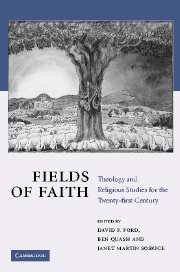8 - Worship
Published online by Cambridge University Press: 22 September 2009
Summary
I want in this chapter to explore the relationship between history, theology, and Christian practice in worship. I want to do this not by way of generalisation, but by scrutinising the mythopaic power of a particular reading of Christian history and its impact on theology, and, more especially, the way in which one such exercise of the historical imagination actually served within twentieth-century Roman Catholicism to reshape the fundamental and constitutive act of the Christian community, the celebration of the liturgy. In the process, I hope I will illuminate something more general about the interaction between theology, liturgy and history so as to contribute to the overall theme of this book about the nature of our discipline, in honour of Nicholas Lash.
Specifically, I want to consider the seminal work of the Austrian Jesuit liturgical scholar, Josef Andreas Jungmann. Jungmann spent a lifetime teaching at the University of Innsbruck, but he also played a key role in the establishment of anglophone liturgical scholarship at Notre Dame. He was a key player in the series of international congresses on Liturgical Studies which throughout the 1950s prepared the ground for the liturgical revolution inaugurated by Vatican II. Above all, he was one of the principal draughtsmen of Sacrosanctum Concilium, Vatican II's momentous constitution on the liturgy, and subsequently wrote the official commentary on it.
- Type
- Chapter
- Information
- Fields of FaithTheology and Religious Studies for the Twenty-first Century, pp. 119 - 134Publisher: Cambridge University PressPrint publication year: 2005
- 1
- Cited by



